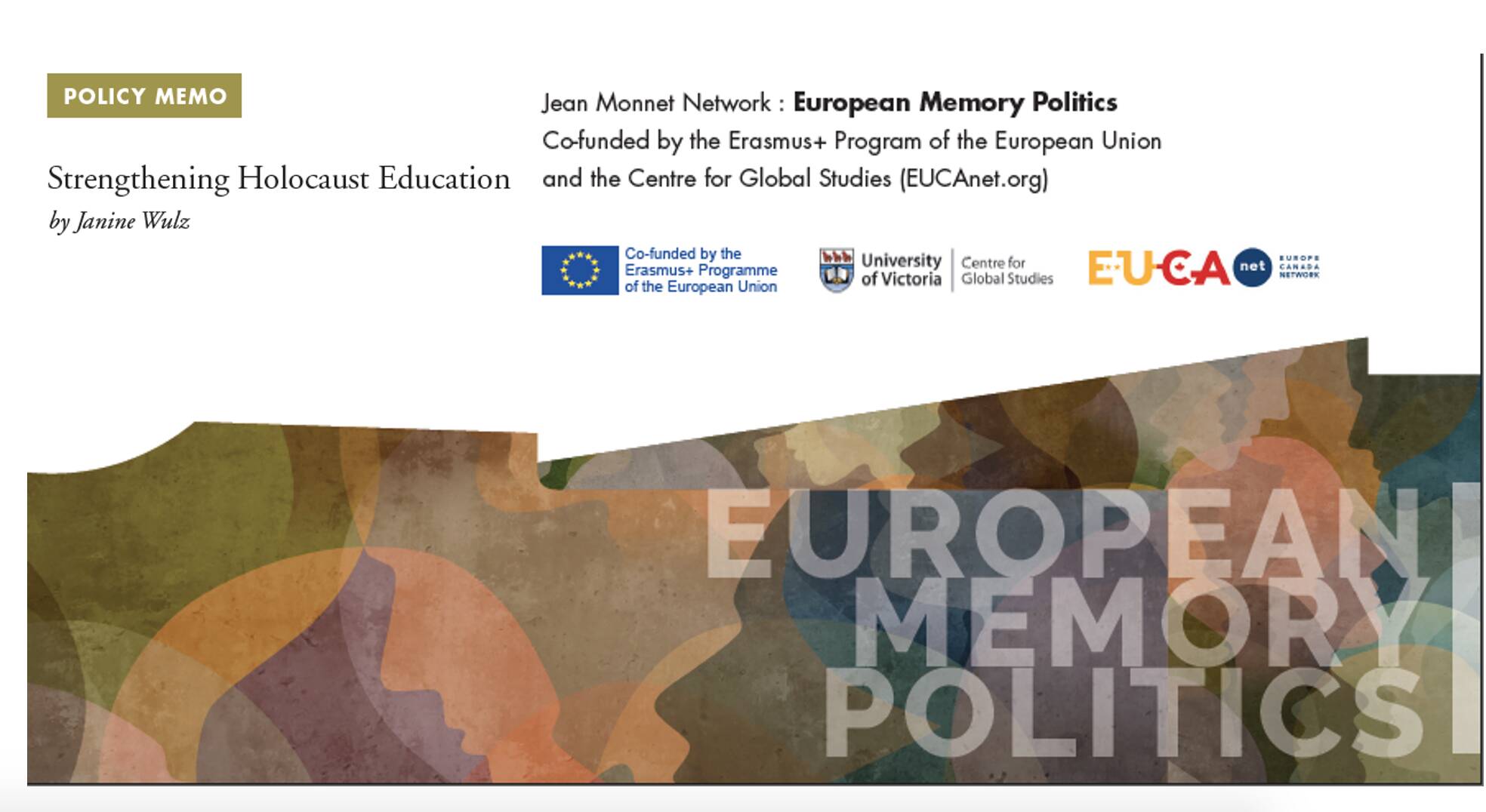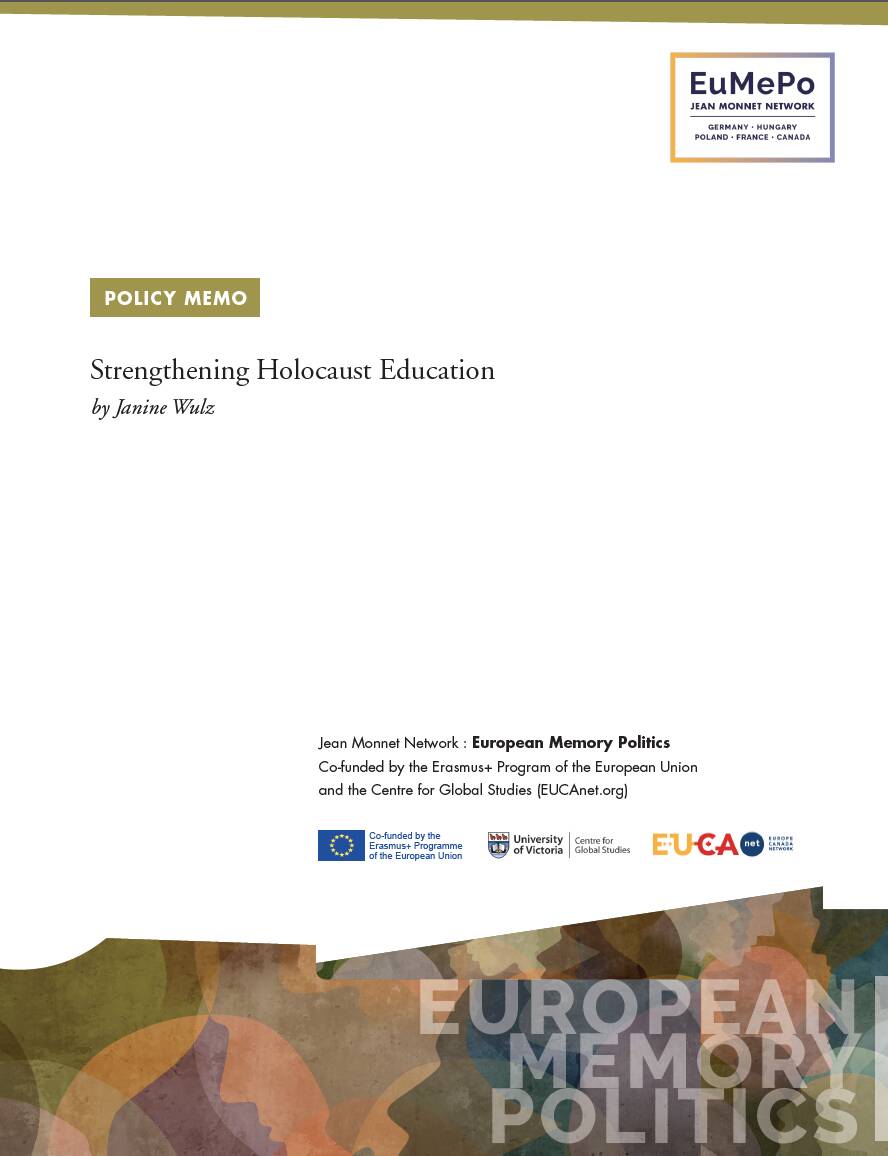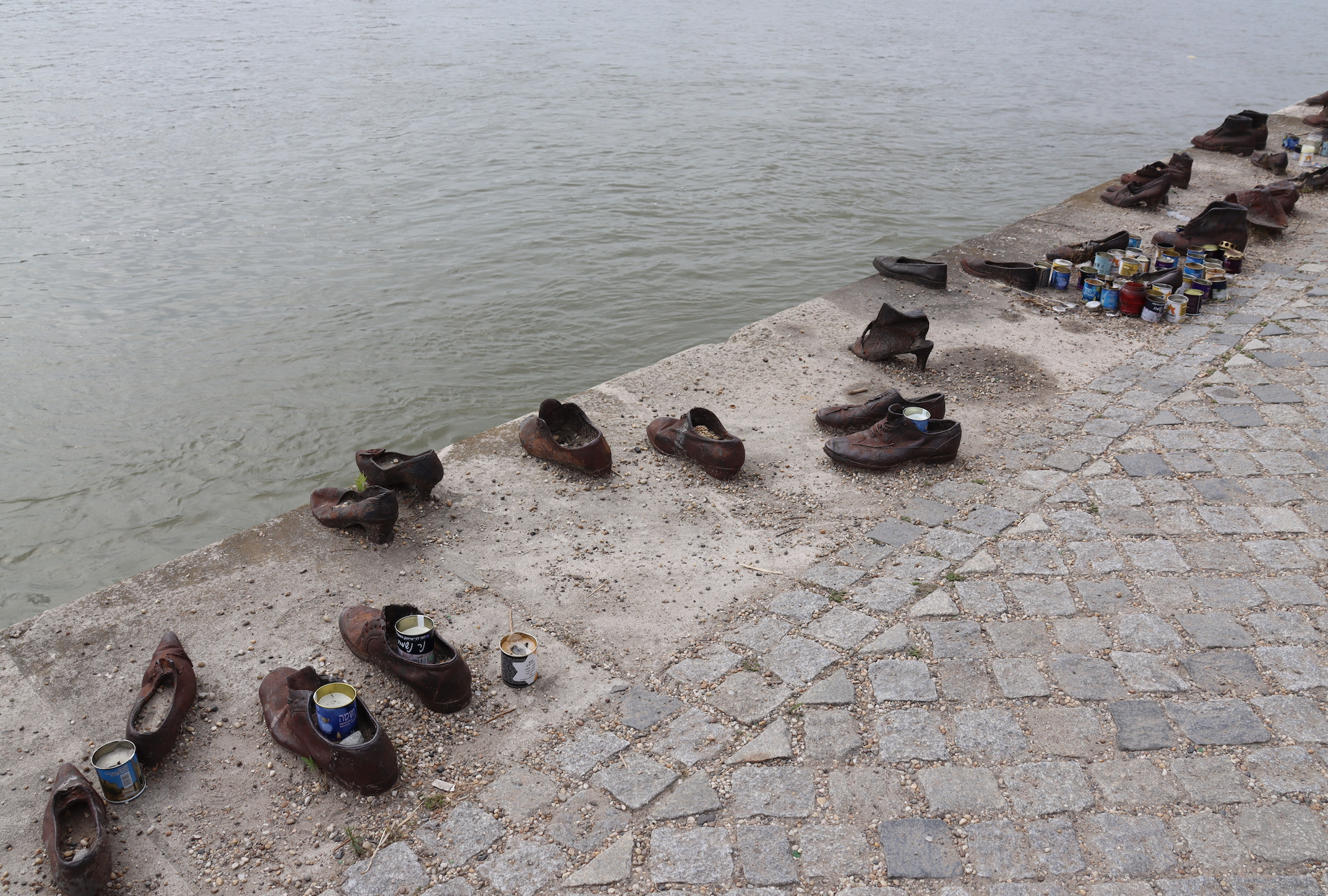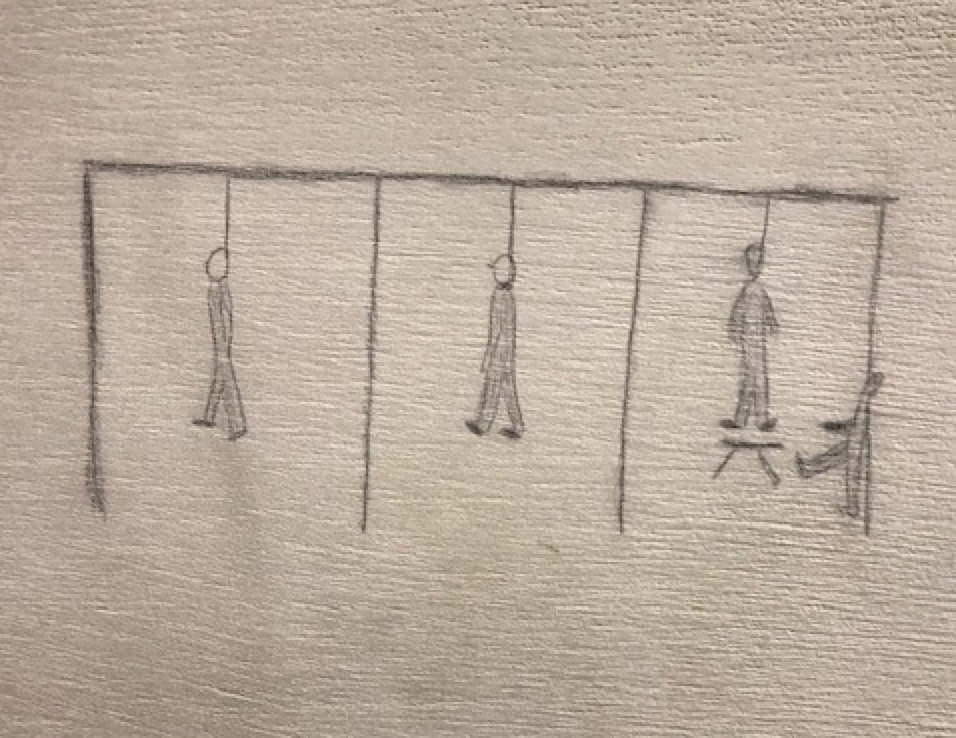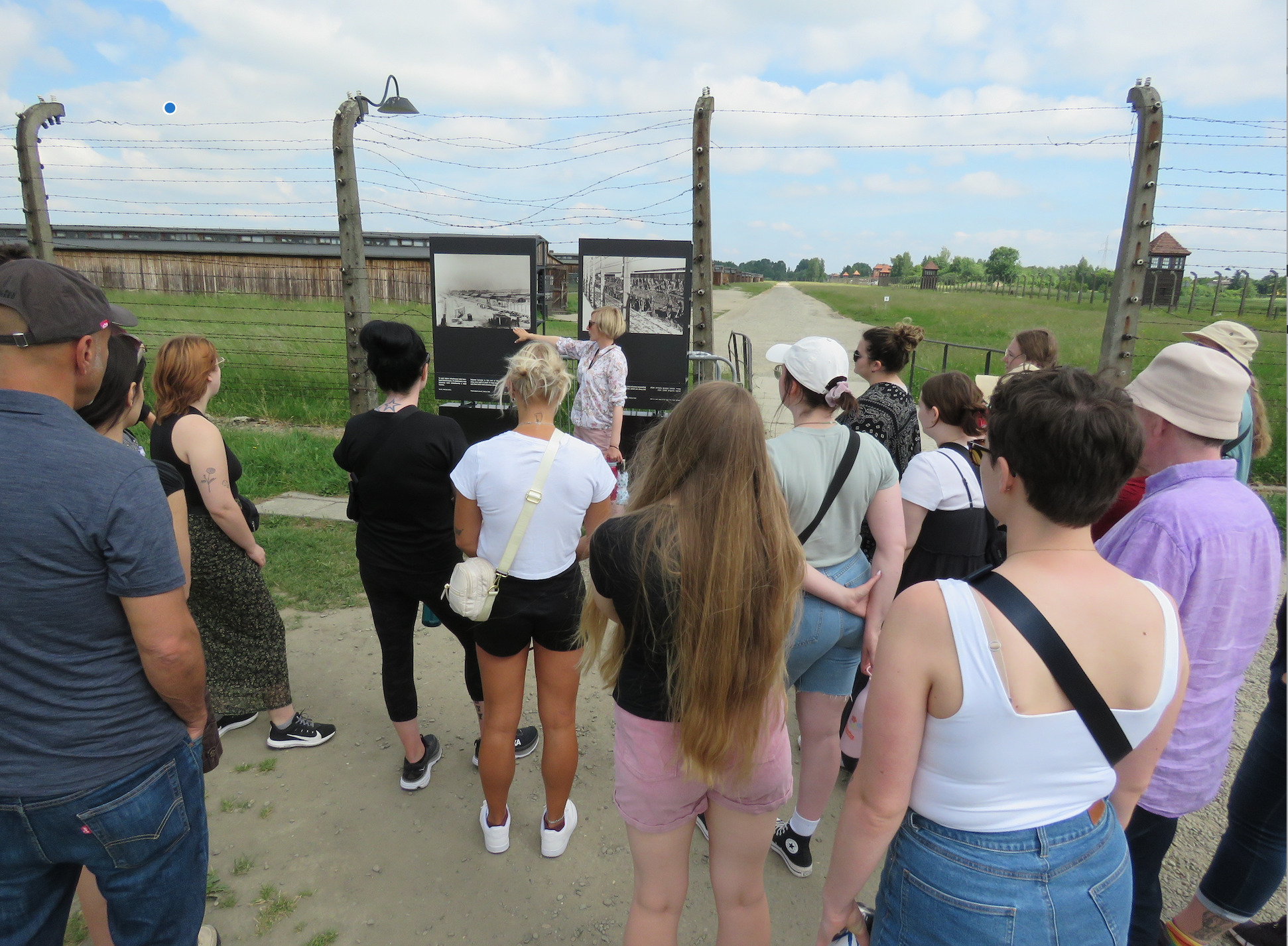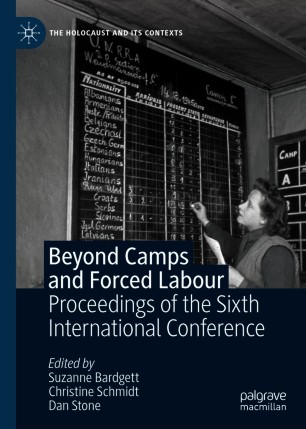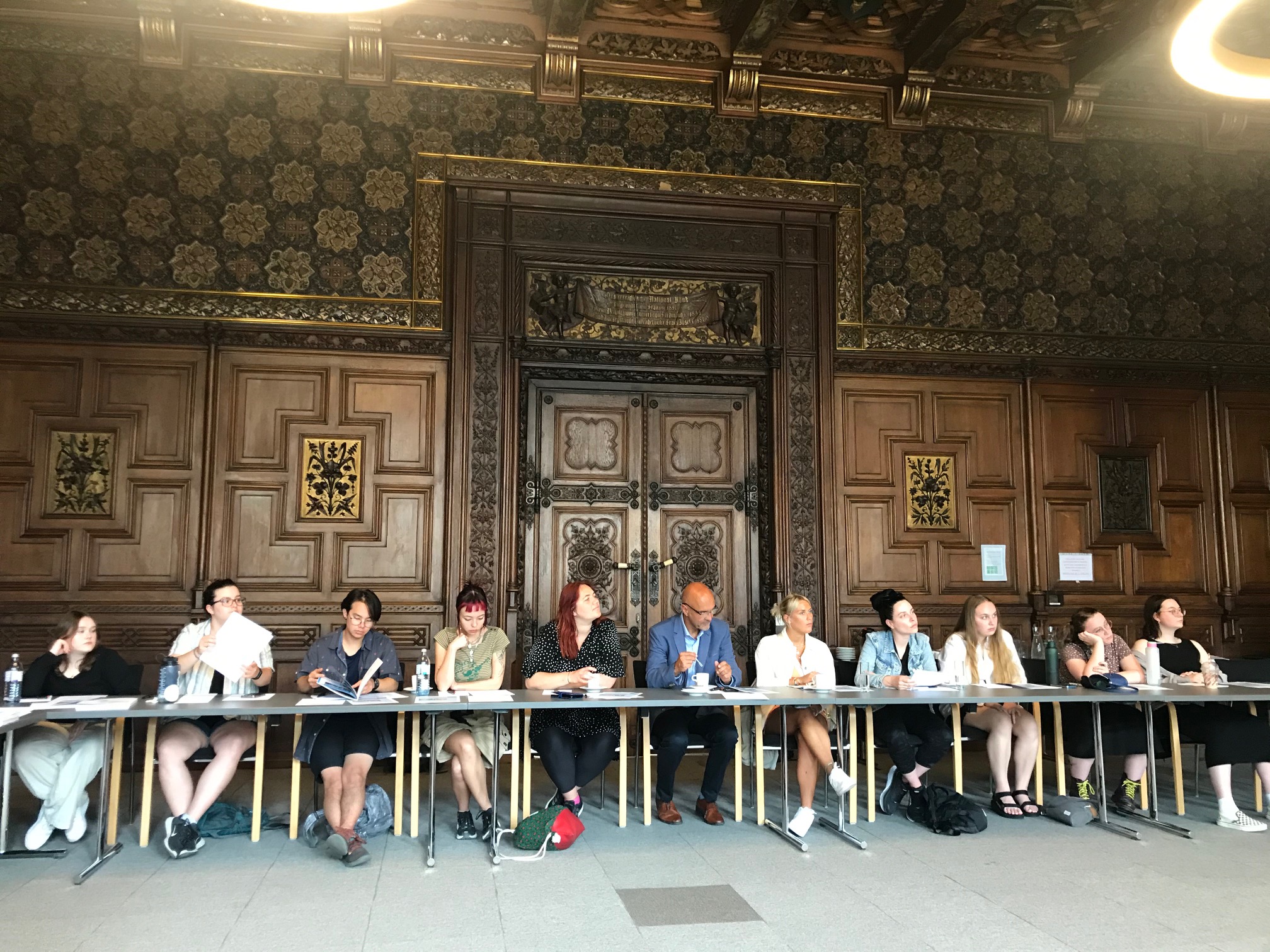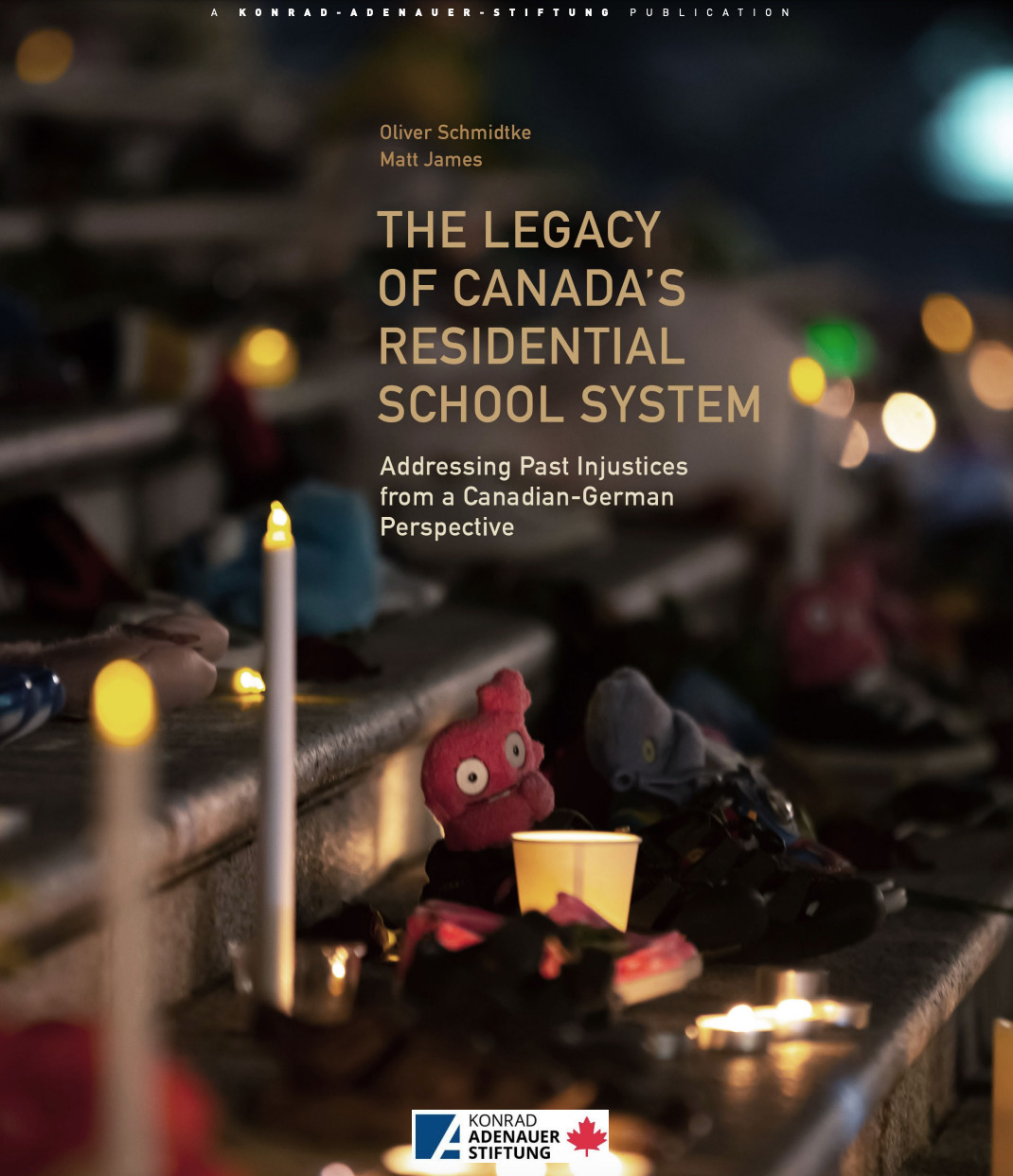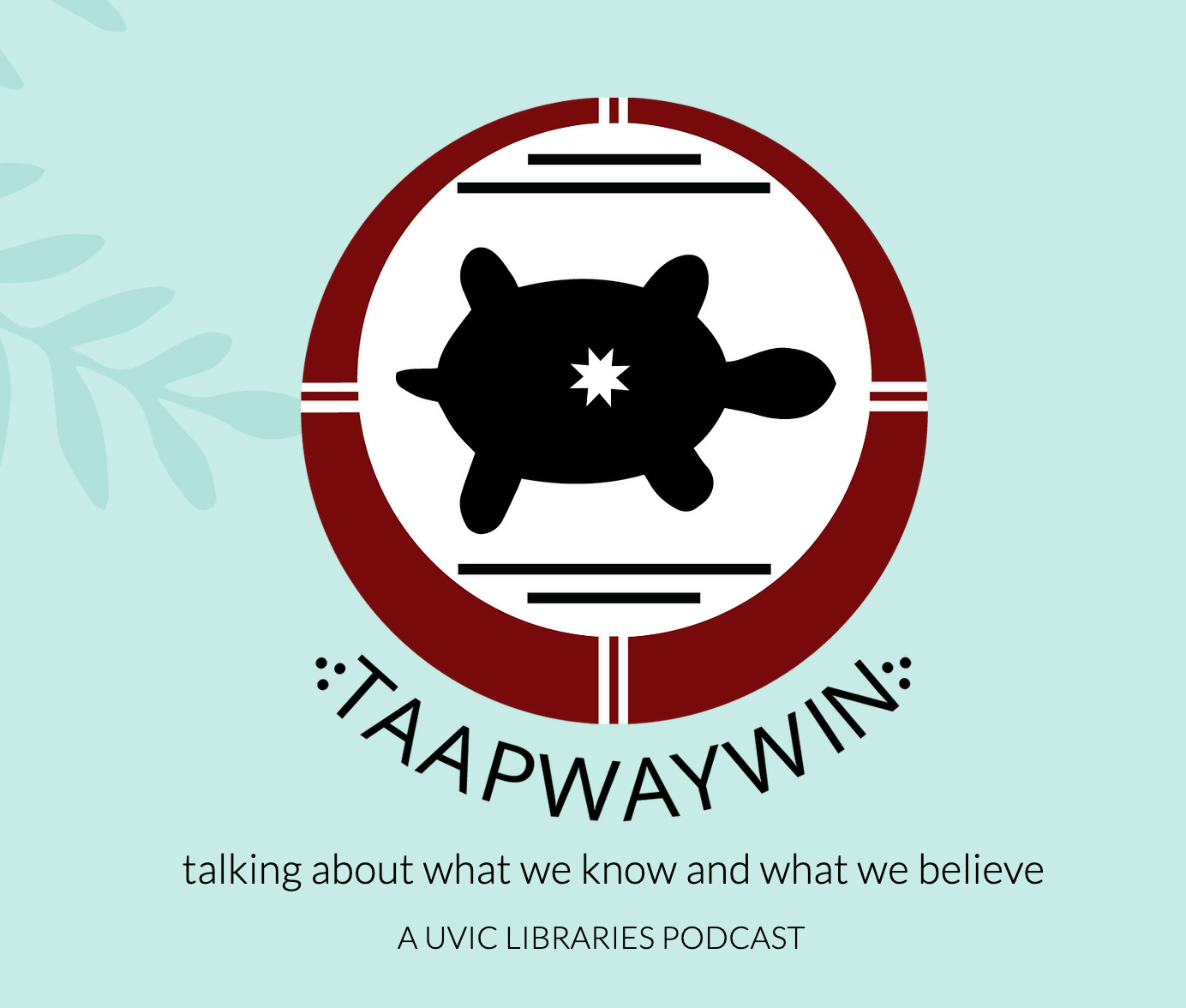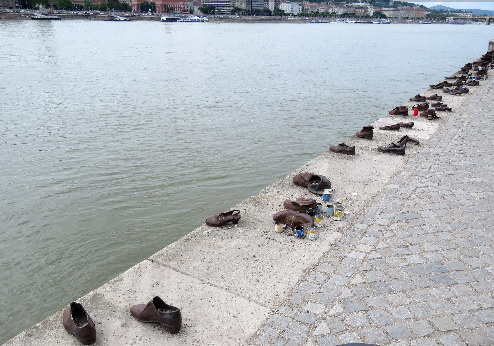Strengthening Holocaust Education – Policy Memo
Janine Wulz, Fellow at the Centre for Global Studies, University of Victoria
Whenever politicians or scholars are confronted with hate crimes, antisemitism, or racism, the call for more or “better” Holocaust Education is usually not far. However, the question of “how” we should educate about the Holocaust is rarely defined in political speeches. Present day Holocaust Education is often understood as either learning about the past with a focus on history education, or as learning from the past, with a focus on todays’ life and Human Rights. Most approaches do not reflect education about the Holocaust as embedded in (trans-)national memory politics. Holocaust memorialization is high on political agendas worldwide, it is tied to understandings of “good” and “evil”, loaded with ethics and morals and used for national identity building. Memory politics define Holocaust Education, as in what is included in classes, what is left out and how it is taught.
This policy memo argues for an understanding of Holocaust Education as embedded in local and (trans-) national memory politics. This requires learners to reflect on the influence of memory politics on understanding the past and negotiating past and present, interact with complex history and de-construct ideas of national identity-formation. To develop policies in support of an understanding of Holocaust Education, that is relevant for the present and the future, this policy brief suggests a range of measures, including the development of national strategies, monitoring, teacher education programs, teacher education and stronger involvement of local initiatives.
